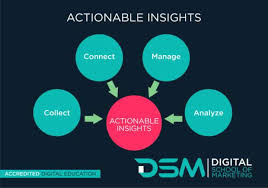Unlocking Success: The Strategic Approach to Targeted Digital Marketing
The Power of Targeted Digital Marketing
In today’s digital age, businesses are increasingly turning to targeted digital marketing strategies to reach their specific audience and drive results. Targeted digital marketing involves tailoring your marketing efforts to reach a particular demographic, interest group, or behaviour segment.
One of the key advantages of targeted digital marketing is its ability to deliver relevant content to the right people at the right time. By understanding your audience’s preferences, behaviours, and needs, you can create personalised campaigns that resonate with them and drive engagement.
Targeted digital marketing allows businesses to maximise their return on investment by focusing their resources on reaching those most likely to convert. By using data analytics and segmentation techniques, businesses can identify high-potential customers and tailor their messaging to appeal directly to them.
Furthermore, targeted digital marketing enables businesses to track and measure the effectiveness of their campaigns with precision. By analysing key performance indicators such as click-through rates, conversion rates, and customer acquisition costs, businesses can refine their strategies for optimal results.
With the rise of social media platforms and online advertising tools, businesses have access to a wealth of targeting options to reach their desired audience effectively. From demographic targeting based on age, gender, location, to psychographic targeting based on interests and behaviours, businesses can fine-tune their campaigns for maximum impact.
In conclusion, targeted digital marketing offers businesses a powerful tool to connect with their audience in a meaningful way. By leveraging data-driven insights and personalised messaging, businesses can enhance brand loyalty, drive conversions, and ultimately achieve their marketing objectives in today’s competitive digital landscape.
Top 5 Benefits of Targeted Digital Marketing for Businesses
- 1. Enhanced Relevance
- 2. Cost-Effective
- 3. Improved Tracking and Measurement
- 4. Personalised Messaging
- 5. Increased Efficiency
Challenges in Targeted Digital Marketing: Privacy, Ad Fatigue, Accuracy, and Cost
1. Enhanced Relevance
Targeted digital marketing offers businesses the advantage of enhanced relevance by tailoring their content to specific audience segments. By understanding the preferences and behaviours of their target audience, businesses can deliver highly personalised messages that resonate with individuals on a deeper level. This increased relevance leads to higher levels of engagement and conversion rates, as customers are more likely to respond positively to content that speaks directly to their needs and interests.
2. Cost-Effective
One significant advantage of targeted digital marketing is its cost-effectiveness. By concentrating resources on engaging high-potential customers, businesses can optimise their return on investment while minimising expenditure on reaching irrelevant audiences. This targeted approach ensures that marketing efforts are directed towards those most likely to convert, resulting in efficient resource allocation and improved cost efficiency for businesses.
3. Improved Tracking and Measurement
One significant advantage of targeted digital marketing is the improved tracking and measurement it offers to businesses. By leveraging data analytics and advanced tracking tools, businesses can monitor campaign performance with precision. This detailed insight allows for data-driven decision-making, enabling businesses to make informed choices based on real-time data. With the ability to track key performance indicators accurately, businesses can identify what works and what doesn’t, leading to continuous improvement in their marketing strategies for better results.
4. Personalised Messaging
One significant advantage of targeted digital marketing is the ability for businesses to create personalised messaging that resonates with diverse audience segments. By leveraging data insights on demographics, interests, and behaviours, businesses can craft tailored messages that speak directly to the unique preferences of each audience group. This personalised approach not only enhances engagement but also fosters stronger connections with customers, leading to increased brand loyalty and improved customer relationships.
5. Increased Efficiency
With the capability to adjust campaigns in real-time using valuable insights and feedback, targeted digital marketing offers businesses increased efficiency in their marketing endeavours. By refining strategies based on up-to-date data, businesses can streamline their marketing efforts to achieve optimal results efficiently. This proactive approach allows businesses to make informed decisions quickly, ensuring that resources are allocated effectively to drive success in a dynamic digital landscape.
Privacy concerns
Privacy concerns are a significant drawback of targeted digital marketing. The practice heavily relies on the collection and analysis of user data, which can raise ethical questions around privacy invasion. With the increasing focus on data protection and consumer privacy rights, businesses face potential regulatory challenges when implementing targeted digital marketing strategies. The risk of data breaches and misuse of personal information further exacerbates these concerns, highlighting the importance of balancing marketing effectiveness with respect for individual privacy rights.
Ad fatigue
One significant drawback of target digital marketing is the risk of ad fatigue. When businesses over-target their audience with repetitive or overly intrusive ads, consumers may become weary and disinterested, leading to ad fatigue. This phenomenon can result in consumers ignoring or even actively blocking ads, ultimately diminishing the effectiveness of marketing campaigns. Ad fatigue highlights the importance of striking a balance between targeting specific audiences and ensuring that marketing efforts remain engaging and relevant to prevent alienating potential customers.
Inaccurate targeting
Inaccurate targeting remains a significant con of target digital marketing, even with the availability of advanced tools. The risk of misidentifying or incorrectly segmenting audiences can lead to wasted resources and missed opportunities for businesses. When campaigns are not accurately targeted, they may fail to resonate with the intended audience, resulting in lower engagement rates and reduced effectiveness. This can ultimately impact the overall success of digital marketing efforts and hinder the achievement of desired outcomes.
Cost implications
One significant drawback of targeted digital marketing is the cost implications associated with implementing such strategies. Businesses looking to leverage targeted digital marketing often need to invest in sophisticated tools and technologies to effectively reach their desired audience. These investments can be substantial, especially for businesses operating with limited budgets. The expense of acquiring and maintaining these resources may pose a challenge for smaller companies or startups, limiting their ability to fully capitalise on the benefits of targeted digital marketing and compete effectively in the online marketplace.




